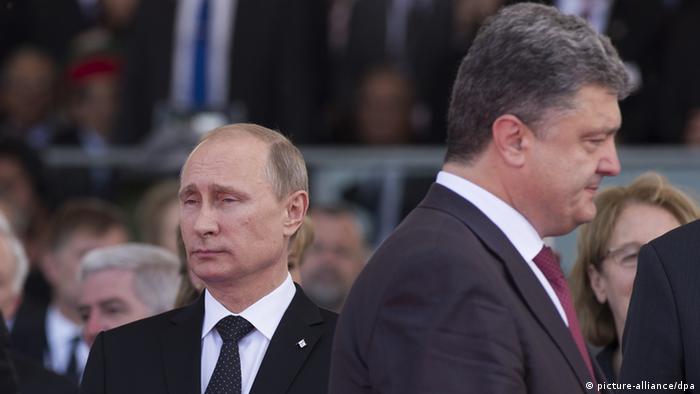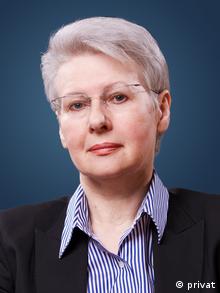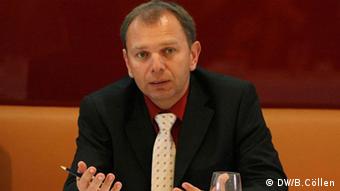
The upper house of the Russian parliament has withdrawn its permission to send troops into Ukraine. Analysts see several reasons why Vladimir Putin may have taken this step.
Only one senator voted against it. On Wednesday (25.06.2014), Russia's Federation Council, the upper house of the country's parliament, almost unanimously withdrew its permission to use Russian forces in Ukraine, an allowance originally granted at Vladimir Putin's request on March 1.
The resolution comes much too late, according to Lilia Shevtsova of the Carnegie Moscow Center.
Shevtsova says Putin's move is way too late
"Putin should have done this much sooner, straight after the annexation of Crimea," says the analyst. Within two to three weeks of the annexation of the Ukrainian peninsula, she says, it was clear that further annexations of regions in the south and east of Ukraine would be impossible.
Still, the current decision does show that Moscow is altering its tactics.
"Just a few months ago, the Kremlin was acting differently," Shevtsova told DW. Now, she added, Putin is working towards negotiations between Kyiv and the separatists that would bring a solution acceptable to both Moscow and the West.
Russia's move
For Cornelius Ochmann of the foundation for German-Polish cooperation, several factors could have contributed to the reversal on putting troops in Ukraine.
Ochmann says the separatists have no chance without Russian military support
"For one thing, the threat of further sanctions and the unity of western states," he told DW. Another reason might be the clear, pragmatic attitude of new Ukrainian President Petro Poroshenko, who has seized the initiative with his new peace plan for eastern Ukraine. "That means that Russia now has to react," said Ochmann. "Up until now, Russia has steered developments."
Ochmann says Putin has now made clear that he wants to be a partner to the West. In the face of the worsening economic situation and the draining of capital, a full-on confrontation would now make little sense. Not only that, says Ochmann, the pro-Russian forces in eastern Ukraine have recognized that they need mercenaries from Russia.
"That was not a movement from below, as in Crimea, where large parts of the population supported the annexation with Russia," he says.
Influence in eastern Ukraine
At the EU-Russia Center in Brussels, Eberhard Schneider sees a step toward de-escalation in the Federation Council's decision to withdraw Putin's ability to use Russian troops in eastern Ukraine. Putin, he says, wants talks between Kyiv and the separatists to lead to a constructive solution.
"If that doesn't happen, then Poroshenko will have to turn to plan B, as he said he would. He wants to move militarily against the separatists, and they really don't have a chance of surviving the conflict," Schneider told DW.
Poroshenko has proposed that regional representatives in the areas of Donetsk and Luhansk decide their fates themselves.
"They can choose their own governor and be autonomous in several ways," said Schneider. And he added that Moscow is probably satisfied with that, because it is unlikely to achieve much more at the moment. "In the medium-term, it wants to maintain influence on the people being sent as representatives of both regions."

Moscow's needs
But Shevtsova warns that the Kremlin has certainly not given up on the option of further destabilizing the east and south of Ukraine. The Ukrainian people, she said, will have to come to terms with the fact that they will be in Russia's shadow for some time. "Russia will remain an influence on that country," she said.
Nevertheless, Ochmann believes Moscow will not succeed in changing Ukraine's pro-European orientation. "If the Ukrainian people have chosen that, then even the Russian president won't be able to use military means to keep Ukraine from the EU." Accession to NATO, on the other hand, is another matter. "I don't think the Ukrainian people are interested in that," says Ochmann.
Schneider is also unconvinced that Ukraine will move closer to NATO. "NATO membership is out of the question," he said. The Russian Black Sea fleet at Sevastopol in Crimea hinders any attempt to station foreign troops there. The border question in Crimea, however, remains unanswered.



No comments:
Post a Comment